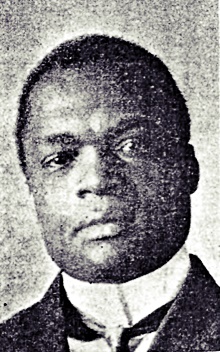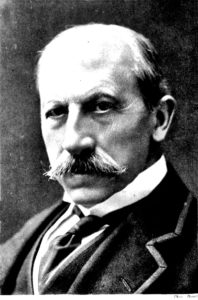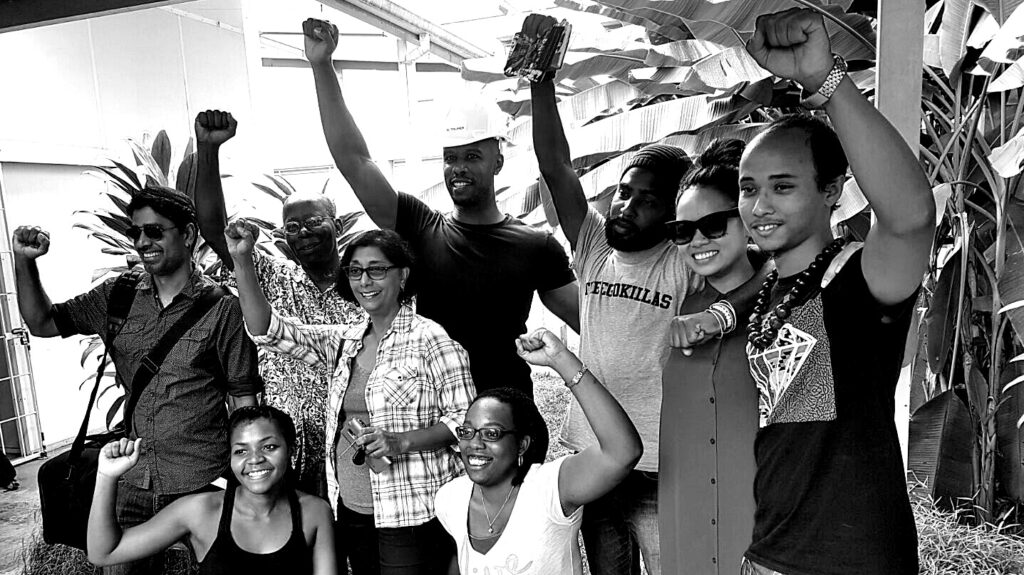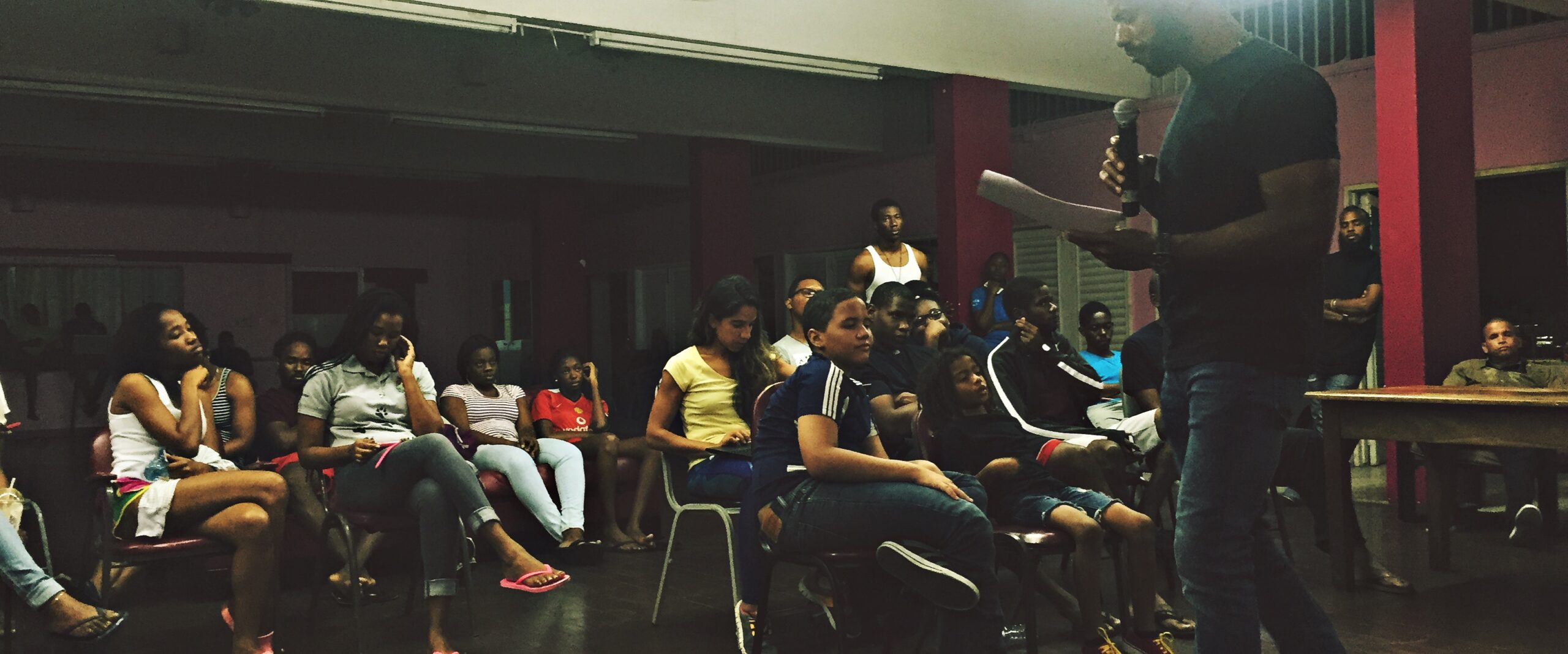Rename Milner Hall
-
by
admin
UWI must rename the Hall
The Legendary Trinidadian lawyer Henry Sylvester Williams (1869-1911) has been put forward by#CrossRhodesFreedomProject Project as an appropriate alternative to self avowed racist and imperialist Lord Viscount Alfred Milner for the name of a Hall of Residence at the University of the West Indies. Below is a brief Bio of the great man.
Bio of Henry Sylvester Williams

Born on Feb. 15, 1869 to ambitious, working class parents. He grew up in Arouca and attended the Normal School in Port-of-Spain and qualified as a primary school teacher at the age of 17 serving as headmaster for the next five years. In 1891 he went to the United States, where he observed the rapid roll back of the gains made by African Americans during the Reconstruction years (1867-1877). Seeing his brothers and sisters systematically disenfranchised, subjected to Jim Crow laws, and virtually re-enslaved economically left a strong impression on Williams.
In 1893 he became a law student at Dalhousie University before emigrating to England in 1896 where in 1897 he continued his study of law at Gray’s Inn, and passed the bar examination in 1900.
In London Williams met Africans from all over the world who had similar stories of oppression, exploitation and degradation by Europeans. To address these injustices he formed the African Association in 1897 with the stated aim “to challenge paternalism, racism and imperialism; and to “promote and protect the interests of all subjects of African descent, wholly or in part, in British colonies and any other place, especially Africa…to secure throughout the world the same facilities and priviledges for the black man as the white man enjoys.”
On July 25th 1900 Williams convened the First Global Pan-African Conference in London. It was attended by some 30 delegates from accross the African Wolrd including representatives from Liberia, and Ethiopia.
The conference protested the denial “to over half the world of the right of sharing to their utmost ability the opportunities and privileges of modern civilization,” and called on colonial powers to recognize the rights of African and indigenous people.” The conference was reported in the leading London newspapers with the Westminster Gazette claiming that it marked, “the initiation of a remarkable movement in history; the negro is at last awake to the potentialities of his future”.
In 1901 he visited Jamaica and Trinidad and the United States establishing branches of his Pan-African Association. in Trinidad there were branches in Naparima, Sangre Grande, Arima, Manzanilla, Tunapuna, Arouca and Chaguanas.
Despite his busy schedule Williams still found time in 1901 to return to London and inaugurate the publication of a monthly journal called the Pan-African.
In 1903 he moved to South Africa and became the first African person to be admitted to the bar in Cape town. He practiced law there but could not sit idly by while the white minority was constructing the foundations of apartheid. As a consequence of his advocacy on behalf of the black majority he began to be regarded as dangerous by the ruling South African whites and it is believed that he was forced to leave. Back in London in 1905, he became involved in leftist British politics. In 1906 he won a seat on the St. Marylebone Borough Council, becoming probably the first black elected official in Britain. #CrossRhodesFreedomProject
Lord Viscount Milner (1854-1925)
Built in 1927, the Milner Hall of residence on the St. Augustine Campus of the University of the West Indies, stands today as a symbol of Britain’s golden age of empire, when Europe controlled over 90% of the African continent, one-third of which was claimed by Britain.
European imperialism in Africa was a genocidal enterprise that brutally wiped out large percentages of many ethnic groups, including the Herero and Nama of Namibia (formerly German South-West Africa); the Matumbi of Tanzania (formerly German East Africa); and the Bakongo, Luba, Lunda, and Imbagala of the Democratic Republic of Congo (formerly the Belgian Congo). Those who survived genocide bore the scars of a great variety of crimes against humanity committed by European colonists under various forms of forced labour, including direct enslavement; they witnessed the rape of the continent’s mineral resources and the pauperization of its people everywhere.
Although the Germans were the most murderous colonial power in Africa, Britain was the most aggressive. It is in this context that Cecil Rhodes and his close associate, Viscount Alfred Milner, flourished as the most rabid advocates of British race supremacy. In the eyes of Boer General, Jan Smuts, Milner would become even “more dangerous than Rhodes.” Milner’s career in South Africa as Administrator and as Cabinet Minister in the imperial government lends support to Smuts’ prediction.
For Milner, the primary goal of imperialism was the entrenchment of white (but especially British) supremacy around the globe. Like the Nazis, Milner proudly boasted on various occasions, “I am an imperialist…and a racist.” He was also well known by his self-proclaimed title, “British race patriot.”
Appointed High Commissioner to Cape Colony (South Africa) in the late 1890s, Milner provoked the Second Boer War (1899-1902), at the end of which Britain controlled the richest colony in Africa. Native Africans assisted the British war effort, believing that they would have a better chance of regaining their lands that the Boers had stolen. They were wrong.
Soon after the war, Milner declared, “I consider the land settlement the greatest of our problems.” But, instead of protecting the interests of his black allies, Milner cut a deal with his white enemies, the Boers, with whom he formulated a new framework of racial segregation and disempowerment of native Africans in the newly created colony of South Africa. The system created by Milner justifiably makes him the “Father of Apartheid”, which historian William Pomeroy describes as “an internal colonial system of the most ruthless kind” in which “racism [is] carried to an extreme.”
Milner described natives of the region as “the most primitive savages.” Accordingly, in the peace treaty of 1902, he restored the two Boer republics as autonomous states while completely disenfranchising the Africans. He also agreed with the Boer Generals to a plan to forcefully appropriate the vast majority of native lands and distribute it to the minority white settlers as the spoils of war, even though the natives had been his allies. To assist in the seizure of African land, Milner established the South African Native Affairs Commission with a mandate to map out the territorial separation of black and white populations. By 1925, the year of Milner’s death, the racist government of South Africa had already appropriated 87% of all native lands, while Africans were herded into reservations, later called Bantustans, which were systematically organized to perpetuate absolute underdevelopment.
Milner understood the critical importance of education as the primary agency of the colonisation of the mind and as a critical medium to disseminate his ideology of imperial federation. Even as he fought the Boer War, he had built a string of secondary schools within the Boer republics to promote Anglicisation. Immediately after the war, Milner created a new institution of imperial indoctrination, commonly called Milner’s Kindergarten. His young protégés included Oxford graduates, whom he would train as the next generation of colonial administrators—their mission similar to that of graduates of the French École Coloniale (Colonial School, established 1889)—the new captains of British race supremacy and imperial federation.


Unknown to most people, the Imperial College of Tropical Agriculture (ICTA), which became the Faculty of Agriculture of the UWI, St. Augustine Campus, was a creation of Viscount Milner, when he served as Secretary of State for the Colonies from 1919 to 1921. The establishment of the ICTA was clearly linked to Milner’s Kinderkarten era of global supremacy through control and advancement of scientific knowledge. It is therefore not surprising that in 1927 Alfred Milner was immortalised in the Caribbean as Britain’s most ardent imperialist by naming the newly built Milner Hall in his honour.
Milner Hall remains a residence for local and CARICOM students as well as students from foreign countries. For the past 90 years the Hall has witnessed many name changes on, and to, the campus, while it continues steadfast to glorify one of the founding fathers of Apartheid in South Africa. In 1948 the ICTA became the University College of the West Indies; and in 1960, the St. Augustine Campus of the University of the West Indies. Many buildings on the Campus have been named to reflect the humanitarian values of the UWI and the Caribbean community that it serves: some of these names include “The Alma Jordan Library”, the “Dudley Huggins Building”, and “Daaga Hall”.
Out of ignorance, the name Milner was allowed to continue as a monument to neo-colonialism and to corrupt the sense of identity of generations of students who have occupied Milner Hall since 1960. We can no longer tolerate the continuation of this abomination 57 years after the founding of the UWI’s St. August Campus and 55 years since the country’s political

